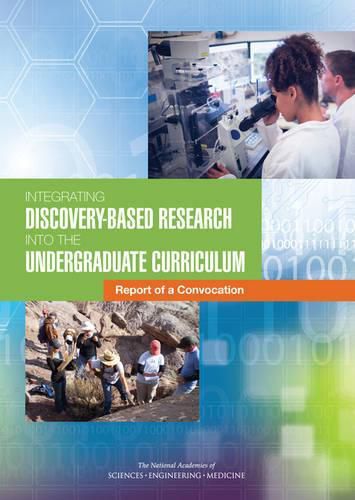Readings Newsletter
Become a Readings Member to make your shopping experience even easier.
Sign in or sign up for free!
You’re not far away from qualifying for FREE standard shipping within Australia
You’ve qualified for FREE standard shipping within Australia
The cart is loading…






Students who participate in scientific research as undergraduates report gaining many benefits from the experience. However, undergraduate research done independently under a faculty member’s guidance or as part of an internship, regardless of its individual benefits, is inherently limited in its overall impact. Faculty members and sponsoring companies have limited time and funding to support undergraduate researchers, and most institutions have available (or have allocated) only enough human and financial resources to involve a small fraction of their undergraduates in such experiences.
Many more students can be involved as undergraduate researchers if they do scientific research either collectively or individually as part of a regularly scheduled course. Course-based research experiences have been shown to provide students with many of the same benefits acquired from a mentored summer research experience, assuming that sufficient class time is invested, and several different potential advantages. In order to further explore this issue, the Division on Earth and Life Studies and the Division of Behavioral and Social Sciences and Education organized a convocation meant to examine the efficacy of engaging large numbers of undergraduate students who are enrolled in traditional academic year courses in the life and related sciences in original research, civic engagement around scientific issues, and/or intensive study of research methods and scientific publications at both two- and four-year colleges and universities. Participants explored the benefits and costs of offering students such experiences and the ways that such efforts may both influence and be influenced by issues such as institutional governance, available resources, and professional expectations of faculty. Integrating Discovery-Based Research into the Undergraduate Curriculum summarizes the presentations and discussions from this event.
$9.00 standard shipping within Australia
FREE standard shipping within Australia for orders over $100.00
Express & International shipping calculated at checkout
Students who participate in scientific research as undergraduates report gaining many benefits from the experience. However, undergraduate research done independently under a faculty member’s guidance or as part of an internship, regardless of its individual benefits, is inherently limited in its overall impact. Faculty members and sponsoring companies have limited time and funding to support undergraduate researchers, and most institutions have available (or have allocated) only enough human and financial resources to involve a small fraction of their undergraduates in such experiences.
Many more students can be involved as undergraduate researchers if they do scientific research either collectively or individually as part of a regularly scheduled course. Course-based research experiences have been shown to provide students with many of the same benefits acquired from a mentored summer research experience, assuming that sufficient class time is invested, and several different potential advantages. In order to further explore this issue, the Division on Earth and Life Studies and the Division of Behavioral and Social Sciences and Education organized a convocation meant to examine the efficacy of engaging large numbers of undergraduate students who are enrolled in traditional academic year courses in the life and related sciences in original research, civic engagement around scientific issues, and/or intensive study of research methods and scientific publications at both two- and four-year colleges and universities. Participants explored the benefits and costs of offering students such experiences and the ways that such efforts may both influence and be influenced by issues such as institutional governance, available resources, and professional expectations of faculty. Integrating Discovery-Based Research into the Undergraduate Curriculum summarizes the presentations and discussions from this event.